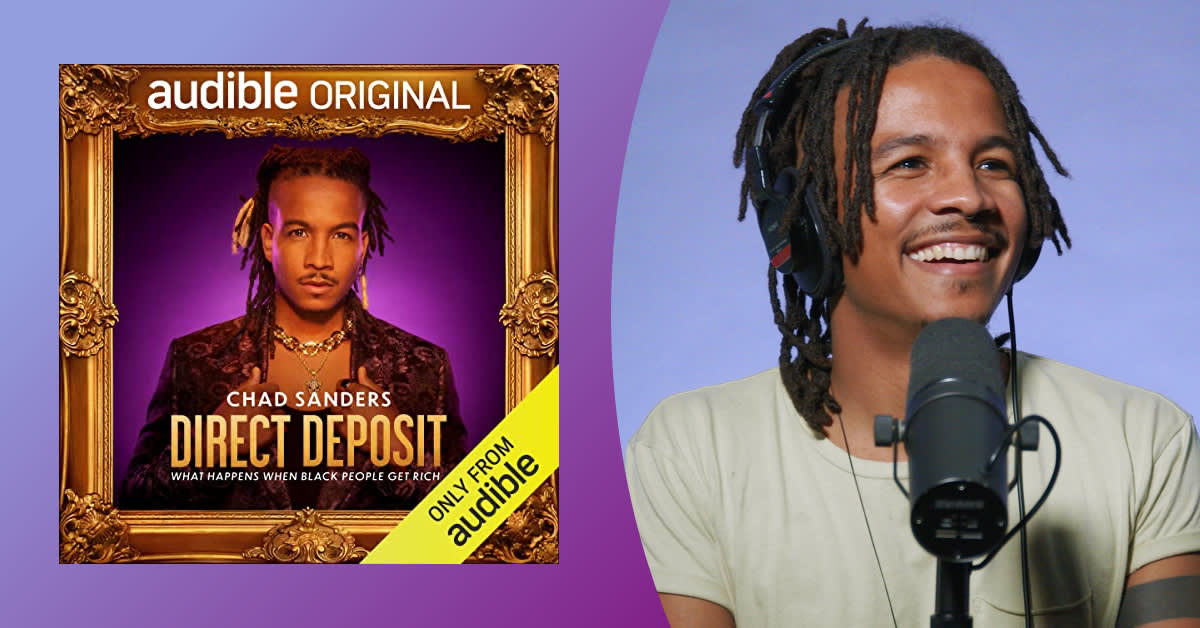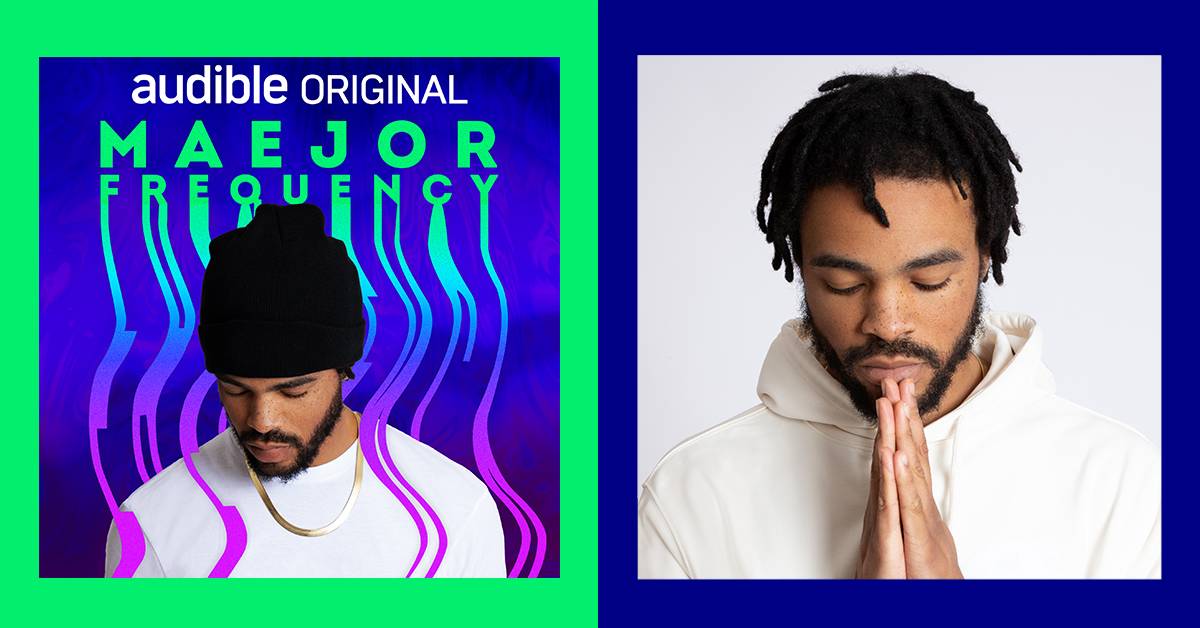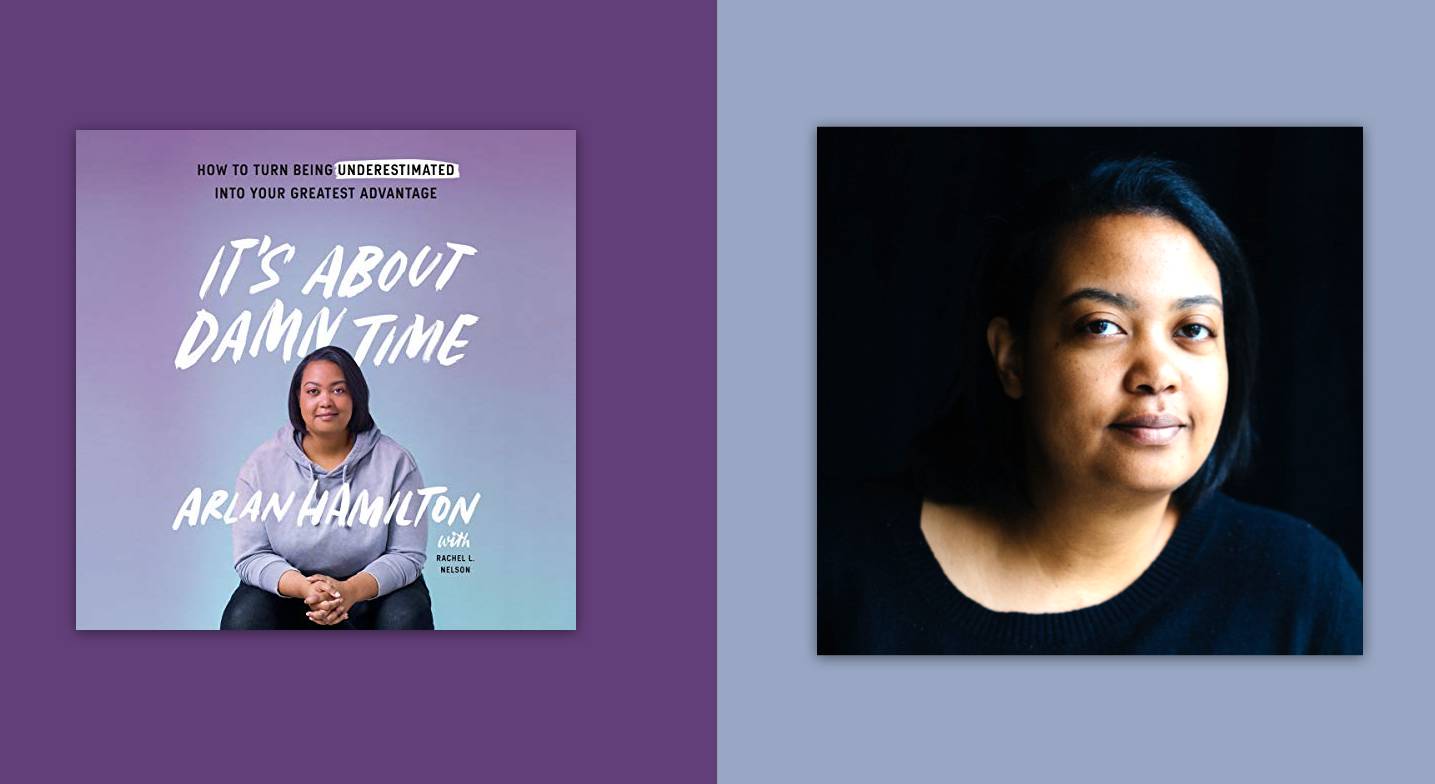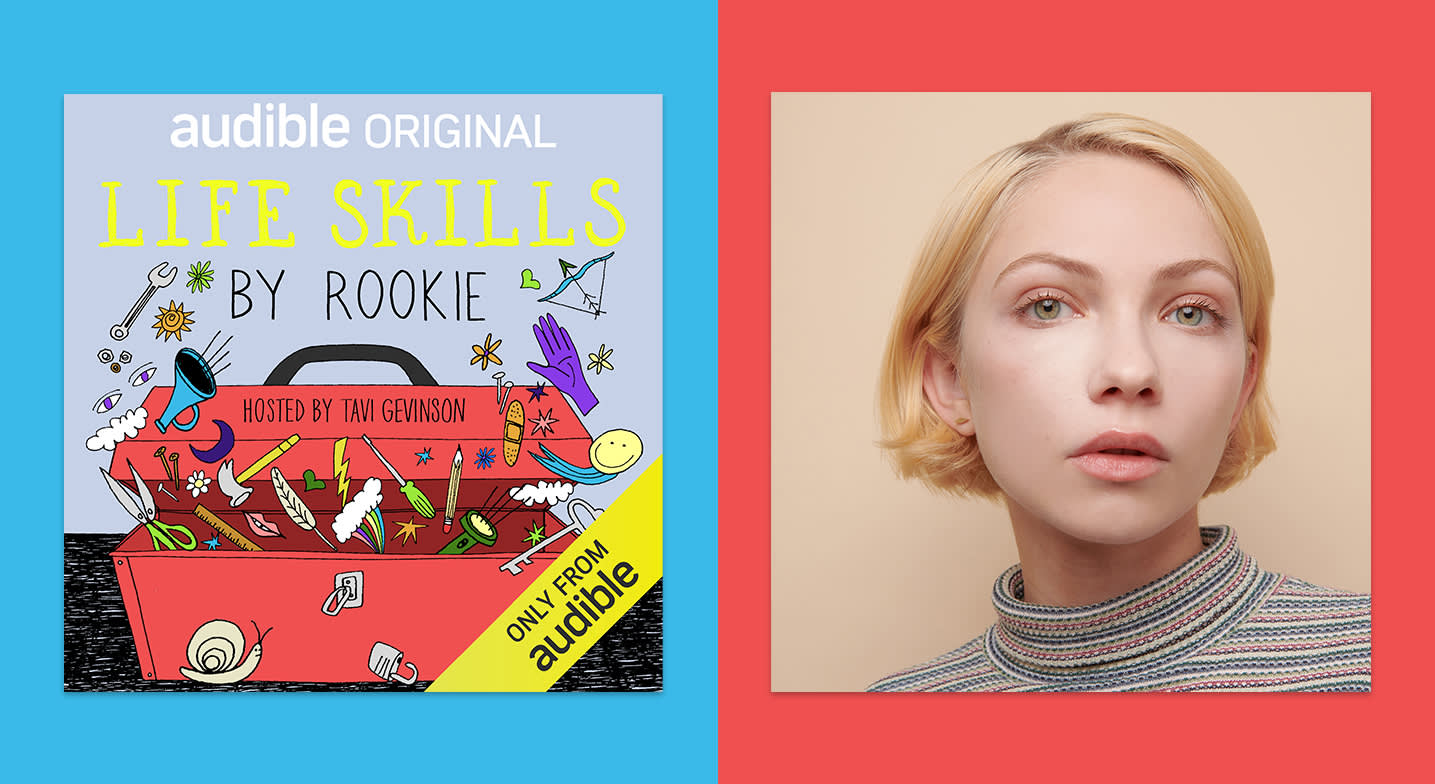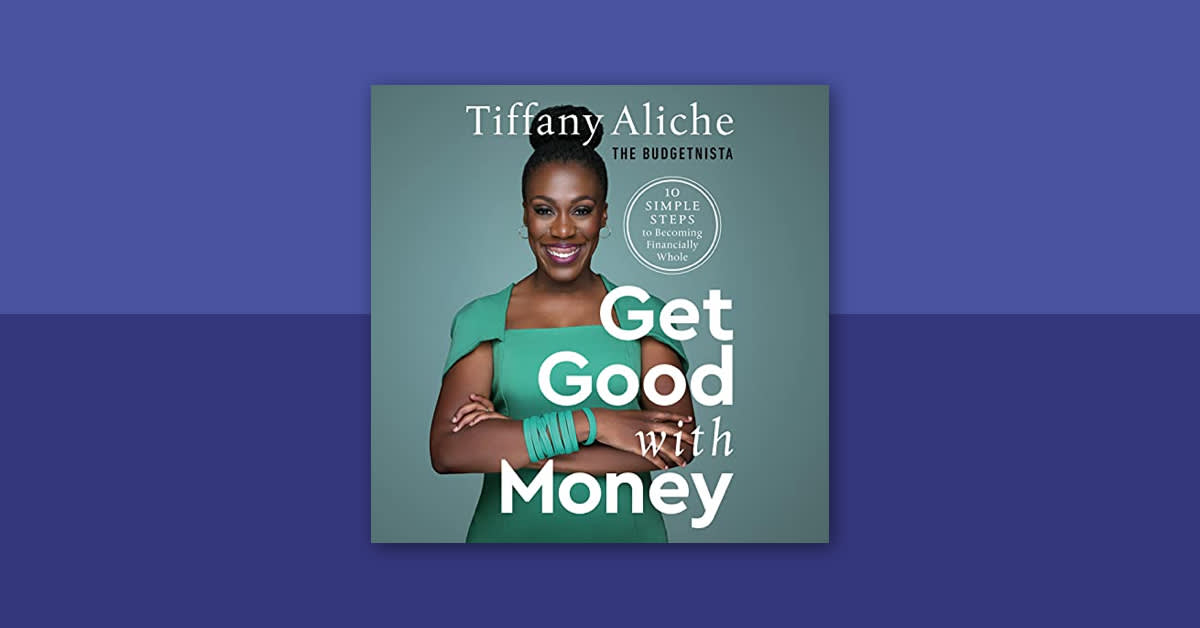We sat down with writer, actor, director, and musician Chad Sanders (Rap Sh*t) to chat about his debut Audible Original podcast, Direct Deposit: What Happens When Black People Get Rich. Pulling from his own experience crossing class lines, Sanders shared with us how he dug deep and asked his guests tough questions to expose the gritty details behind how the entertainment industry systemically stymies Black talent—leading him to the conclusion that money can’t guard against racism. While Sanders rubs shoulders with notable stars in this unique audio experience, his message resonates with anyone who has struggled to realize their dreams—even after reaching their goals.
Audible: What made you want to share Direct Deposit with listeners now?
Chad Sanders: I think two things. The main thing was that it comes from my actual life experience, you know? For me, the most urgent and the most important story is the one I'm living in right now. And that story, as far as Direct Deposit is concerned, is about a writer who jumped out of corporate America to try to live his dream and fell very hard on the floor—quite literally. Like, sleeping on a mattress on the floor because I wasn't making any money early on in this industry, as most people don't—especially as most Black people don't.
I spent the first three or four years just trying to figure out how I was gonna be able to support myself as I pursued this dream. And, in a weird way, it all moved very slowly until it all started moving very fast. I looked around and my entire life was different, because I was starting to make some money. My relationships had changed. A lot of my friendships had changed because I had sacrificed moments to try to live this dream. I had missed weddings, christenings, and birthday parties, all that kind of thing. As I started to have some success in this, I was suddenly surrounded by a lot more white people than were in my life before. All of that was creating such a maze for me to navigate—and, to me, a very compelling story, a very emotional story.
It's been so stressful. It's been in many ways so hard and in other ways so exhilarating. So exciting. So fun. I'm a storyteller. I just wanted to tell a story. A good story, you know? A story that I thought many Black people could relate to, but frankly that I think anybody can relate to who's trying to do something bold and something hard in their life. So, that's the first part.
The second part is we're living in a time where the middle class is shrinking, and I think the Black middle class is shrinking even more significantly, which is to say there is some small number of us getting some humongous opportunities to amass wealth in entertainment, in sports especially, and in some ways in corporate America. And it's creating a very isolating experience for those people.
I think it's easy—and I've been guilty of this myself—to look at them as the privileged few who have been able to get rich and have the things they want. But there is an emotional maelstrom that's happening underneath the surface for those people because, again, they're isolated. And I really wanted to explore that truth and that journey, and get into the dirtiest, nittiest, grittiest pieces of it and present that in a way that was artistic. Those are the reasons why I wanted to do it now.
What do you hope listeners will take away from your podcast?
This is a roughly four-hour audio experience. First and foremost, it's art. I think this is far removed from what people think of when they think of a podcast. My funny name for it is a “podcastle.” My sister calls it a “chadcast.” The boring, lame name that I've given it for now is a “podcast album.” It is a story being told, there's interviews, there's so much emotion. It is so raw. It's so far beneath the waterline of what I think people generally share in public forums about their lives.
I came into working on this project not even realizing how intensely I was connecting my self-worth to my ability to amass wealth.
But there's also a very rich music experience. This thing has been produced and orchestrated musically. It's mastered. I've heard people humming back the songs to me that are in this thing, you know? The music is gonna stay with you. First and foremost, I want people to feel like they engaged with something that they love as art. I don't want them to compare it to just their favorite podcast. I want them to compare it to their favorite thing that they like to watch or listen to—their favorite movie, favorite album, whatever.
Second thing is for Black people at any part of this journey, whether they have just quit their job and they're starting to build a business, or whether they are still in a corporate job somewhere and they feel crushed by corporate America and by racism that seeps into the walls of capitalism ... or whether they're all the way at the end of this journey and they're someone like Issa Rae or Gabrielle Union, who's, you know, wealthy and successful. But for all those people who are going through these different pieces of the journey and feeling so tormented by the journey and feeling also so exhilarated by the journey, I want them to feel seen. I want them to feel me. I want them to connect to this, and I want them to relate to this ... literally, I want it to be a feeling. Sometimes you hear something in a podcast or an audiobook, and it's mentally stimulating, but I want it to be mentally and physically stimulating, you know?
The third thing I want everyone to experience who listens to it is empathy. Especially right now, the cases of super successful, super wealthy Black people spinning off the rails are well-documented. I don't think I need to even mention the ones in current events, right? And that's asinine. And it's sad. And it makes me mad. And it makes me frustrated that I lose many of my heroes, after they reach some certain tipping point of success. I don't wanna moralize around it, but I really wanted to focus on that experience and understand what's happening to those people when they get to that place. I want people to be able to get a really up-close look at that experience and decide to judge for themselves. Like, what is that phenomenon?
You know, it's a complete coincidence—but there are no coincidences—that the show starts with me in Kanye West's bathroom, you know? There's no escaping that. It wasn't planned. I didn't know he was gonna completely, you know, turn into what he's become when the show came out. But, it is what it is. That's where it is.
How has your personal definition of success changed since creating Direct Deposit?
It's changed tremendously. I came into working on this project not even realizing how intensely I was connecting my self-worth to my ability to amass wealth. I think from childhood, from birth on some level, as a person, as an American, and as a Black person, I have been taught that my ability to earn defines my value. I've been taught that I am as much a human resource as I am a human. Which is to say, I'm a thing, and as a thing, my job is to be valuable. My job is to get people to spend money on me, to give me their money so that I can then spend money on other people.
You know, it's a complete coincidence—but there are no coincidences—that the show starts with me in Kanye West's bathroom, you know?
I didn't realize how much I had internalized that until I started writing and talking about this topic for this project. It was hurting me. It was hurting my relationship. It was hurting my friendships. It created a level of competition between me and people I cared about, people in my industry, that was toxic. It was something I was waking up with every day and going to bed with every day, which was just this urgent, angry, insecure obsession to earn. An obsession with how much I could earn. An obsession with how much I had already earned.
Underneath it, the "why?" is that, somewhere along the way, I let somebody make me believe that money could get me free. That money could get me out of racism, that money could get me out of so much of this bullshit that's been thrown onto me as a Black person in this country. And, in doing this project, in talking to people who have gotten all the way over to— people in the hundreds of millions of dollars range in terms of their net worth—I now know they have some luxuries, they have some abilities to protect themselves that money can afford them, but it doesn't give them freedom. It does not give them freedom. And it's not gonna give me freedom.
Somehow, in some crazy, backwards way, learning that there was no monetary path to freedom has afforded me some freedom. I feel lighter having gone through the process. It was so stressful to make this project. I would bet you can probably hear that in the project, you know? I lost lots of sleep, I had hard conversations. I had to completely excuse myself from certain relationships. I didn't have the emotional energy to invest in certain parts of my life because it was all going in this project. But now, with it behind me, knowing that the money is not the answer, that we gotta find another answer, I feel relief. I feel freedom.
What was it like collaborating with the many talented and notable guests on your podcast?
The first thing I'll say is it was surprising [laughs] to do that because it's important for me to remember the context that a year and a half ago at this time, nobody had heard of me. My book hadn't come out. You know, I hadn't been on any podcasts or the news. I had never been staffed on a TV show. Everything was so different just a year and a half ago.
The first thing I felt when people—like Issa, Gab Union, Soledad O'Brien, Charles King, and Pinky Cole—agreed to come on record and talk about such sensitive subject matter, I was surprised. You don't really get to hear people talk like this about this stuff because it's white-hot, you know? It is such sensitive subject matter. So, I was surprised.
The process of it was the ultimate itch to scratch. This is what I love to do—sit across from somebody who has a point of view, who has an experience, and really get into the most un-allowed areas of that subject.
I had just finished working with Issa on Rap Sh!t when we did our interview. It was cool to get to see this person who I knew at that point as our executive producer, basically the boss, going back in her memory logs of being an early 20s person who didn't have any money, didn't know how she was ever gonna get some money, had a hard time getting out of bed every day because she felt so weighed down by her brokeness. It's amazing to get to talk to somebody like that 10 years later, after she's realized all of the dreams that she had when she was feeling weighed down.
I recorded most of these in the Brooklyn podcasting studio owned by a Black man named Josh, who's great guy, just a great producer. Almost all of the interviews, in fact, I think all of them, were done by Zoom. I got Gab [Union] probably for an hour, hour and a half. She told me to call her Gab. I loved that she had such a clarity of point of view and a voice in the things that she was saying. She knows her shit. She knows what she's been through.
They have some luxuries, they have some abilities to protect themselves that money can afford them, but it doesn't give them freedom. It does not give them freedom. And it's not gonna give me freedom.
She was not dancing around any of the issues. She was not careful, as far as I saw her, you know? She felt fearless. She felt completely realized. She called white supremacy on its face. Frankly, she called Black people hiding from other Black people in our industry on its face. She just said exactly what she thought and felt. To me, that's the epitome of being an artist. And that's the epitome of a great writer—somebody who has the point of view and gives it to you as directly and as frankly as possible. So that was tremendous. I learned how to better verbalize my own thoughts by working with her in that way.
And the others ... I don't wanna gloss over who these other people are because they're not all Hollywood celebrities. Like Pinky Cole, who is the CEO and founder of Slutty Vegan, which has become an empire franchise of vegan fast food. Pinky talks about starting a restaurant in her late 20s in Harlem, and it burned down. She had to start all over again. Now, she runs a billion-dollar restaurant franchise. A Black woman in her early/mid-30s, from Baltimore, right? Whose father was incarcerated. Who learned how to make Jamaican food from her incarcerated father. Who learned business from her incarcerated father, you know?
I was driving past a penitentiary in Williamsburg just earlier today, and I looked over at the prison and thought, "There's hundreds, if not thousands, of guys who look like me, who can think just like me, just like Pinky's father, who have the capacity to be out here building billion-dollar franchises like Pinky, you know? If only." It's hard to ask somebody about how racism has played out in their life. It's hard to ask somebody, "How much money do you have?" Which I asked several people, and some were willing to reveal in this show. It's hard to ask people, "How do you get your money? Like, where does it come from? How do you invoice it?" These are challenging questions because most people don't wanna talk about it.
I go back to the feeling of surprise and relief that these people were willing to give their stories so generously, because they know there's other people out there like me and like the other versions of themselves who need this information.
Why should people talk about money?
I'm always hesitant to use the word "should" because I think the ultimate should, to me, is people should do what they wanna do. What they feel compelled to do. I think I wanna talk about money because the information is so powerful. It's so potent.
I have friends like Quincy Avery, who's in this show, who are about the same age as me, kind of in the same phases of their careers or maybe a step or two past me, and those people will just tell me straight up, "I make this much money for speaking arrangements. I have this much equity in my company. I share this much with my employees." That can be the difference between success and failure. That can be the difference between losing three hours of sleep at night because you're concerned, you're confused, you don't know if you're doing the right thing. You don't know if you're being overly aggressive or overly passive in a negotiation. Those are the things that, frankly, companies and lawyers are hiding as information to keep us on the menu instead of at the table. That's the shit that we know.
The powerful people are keeping the money secrets, and it's my job to steal those secrets and get 'em out to the world, basically.
I think everybody has a gift. I think one of my gifts is that I will ask a very, very challenging question, and when I get the answer, I will try to amplify that answer to anybody that wants to hear it.
I do not follow the Hollywood decorum. I do not follow the networking decorum. I don't wanna say names, but I don't care who you are ... I don't care so much about the people who are further ahead in this thing than me. I care about the versions of myself from the last five, six, seven years, 'cause I remember how hard it was to get people to pick up the phone. I remember how hard it was to get agents, managers, handlers, producers, and all these fancy people to hear me out.
Money is the best-kept secret in this entire industry. How the money moves hand over hand. A lot of writers are just happy to sign a contract, collect their check, and pay their mortgage, rent, whatever. I'm trying to build a business. I'm trying to build something sustainable, so I need the information. And there's other people like me who need that information too. The powerful people are keeping the money secrets, and it's my job to steal those secrets and get 'em out to the world, basically.
You can listen to all eight episodes of Direct Deposit on Audible now.
